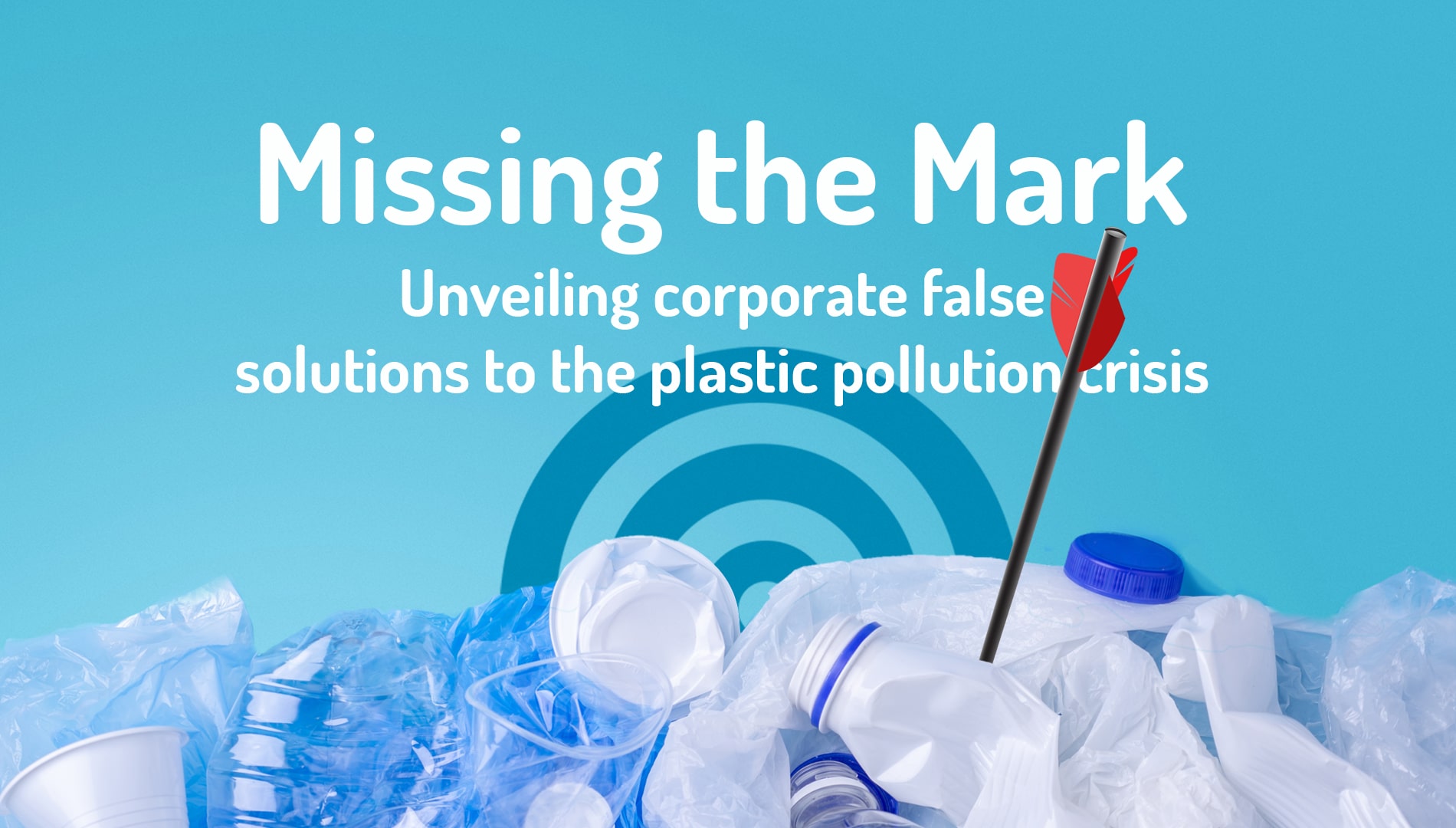June 22, 2021 - Top fast moving consumer goods (FMCG) companies are churning out plastic pollution ‘solution’ projects that do very little to solve the plastic pollution crisis. The Break Free From Plastic global movement has tracked and analysed projects that seven major companies and eight alliances claim are part of their response to plastic pollution. Titled “Missing the Mark: Unveiling Corporate False Solutions to the Plastic Pollution Crisis", the report categorizes 265 corporate projects to determine how much attention companies are giving proven solutions such as reuse, compared to false solutions. Out of a total of 265 projects running from 2018 to April 2021, only 39 were focused on reuse and a total of 226 projects were designated as false solutions to the plastic pollution crisis as defined by experts from the Break Free From Plastic movement. The report analyzed the initiatives of Procter & Gamble, PepsiCo, Mars, Inc., Mondelez International, Nestlé, Unilever and Coca-Cola Company, consistent top polluters in the global brand audits conducted by Break Free From Plastic.
“The world’s top polluting companies claim to be tackling plastic pollution, but the evidence for how serious they are is in the numbers. These companies are pursuing false solutions that range from potentially damaging at worst, and simple wishful thinking, at best. What the findings reveal is that only 15% of the projects are proven solutions like reuse, refill, and alternative delivery systems. Instead, these companies are investing in projects that do little to eliminate single-use plastics.” said Emma Priestland, Break Free From Plastic Corporate Campaigns Coordinator.
The report ranked the companies from absolute worst to least worst. It finds that Procter & Gamble is the absolute worst at solving plastic pollution, and Unilever the least worst, but still performing poorly.
Greenpeace USA Global Project Leader Graham Forbes said:
“This report offers yet another example of big brands failing to prioritize reuse and the reduction of throwaway packaging. It is clear that reuse-based alternatives are essential for these companies to remain viable in a climate-safe future and end their contributions to the plastic pollution crisis. Instead of working with the fossil fuel industry to promote false solutions, these companies must end their reliance on single-use plastics and scale-up systems of reuse globally.”
Yuyun Ismawati of Nexus3 Foundation in Indonesia and a member of the expert panel which analyzed the corporations’ initiatives, said:
“In Asia, we’ve been seeing a lot of these false solutions that these companies and their alliances are peddling. Chemical recycling creates new toxic waste; plastic to fuel or Refuse Derived Fuel is contrary to the circular economy, and plastic offsetting is upsetting because it fails to answer the plastic crisis. These types of initiatives show a lack of ambition and prioritization of alternative product delivery methods. Multinational corporations have more than enough resources to invest in new delivery systems, reuse, refill and redesign, that would allow for a dramatic reduction in the use of single-use plastics. They should change the way of doing business and stop greenwashing.” #ends
CONTACT:
Jed Alegado
Senior Communications Officer - Asia Pacific
+639176070248
jed@breakfreefromplastic.org
Brett Nadrich
Communications Officer - US
+1 (929) 269-4480
brett@breakfreefromplastic.org
Lys Mehou-Loko
Communications Officer - Europe
+31621494684
lys@breakfreefromplastic.org




